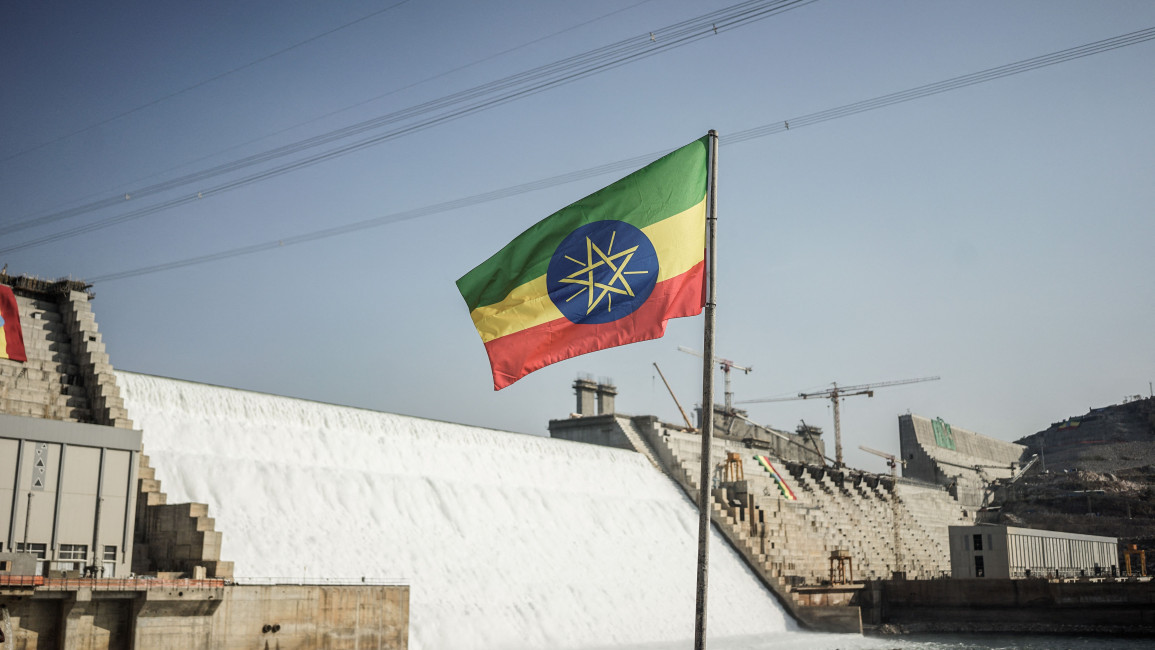
Between a dam and two autocrats: Biden's GERD dilemma
Not long after Joe Biden clinched the White House, Egypt's ambassador to Washington dialled up ex-congressman, Ed Royce, who fronts the US legal Brownstein Hyatt Farber Schreck.
The task was straightforward: for a lavish fee of $65k a month, Royce would lobby congress and the White House to support Egypt in Cairo’s attempts to throttle Ethiopia’s divisive dam project on the Nile.
The Grand Ethiopian Renaissance Dam (GERD), once filled, will be the largest water reservoir in Ethiopia, holding volumes of up to 74 square kilometres. It sits on the Blue Nile. Egypt, which lies thousands of kilometres downstream from the dam and has historically benefitted from its water the most, fiercely opposes its construction. Cairo fears that the Nile’s waters, the lifeline of its economy and statehood, will dwindle in the future.
"Cairo fears that the Nile’s waters, the lifeline of its economy and statehood, will dwindle in the future"
In February 2022, Ethiopia announced the $5bn GERD Dam has gone live and Ethiopia will start drawing hydroelectricity supplies from it. This has deepened Cairo’s fury, causing them to take its diplomatic efforts to scuttle the dam a notch up.
Dancing according to Egypt’s money tune, Royce, the former House of Representatives member for California, tapped into his environmental credentials to warn congressmen that the GERD Dam will wreak massive damage to Egypt's environment and regional ecosystems.
As if prophesying Egypt's future moves, in June 2020, Ethiopia had already hired Indiana law firm, Barnes & Thornburg, for $130,000 a month to get the then Trump administration on its side in the GERD Dam dispute.
Podcast: Oh dam! Water is all this about? The GERD dispute and the future of the Nile River
— The New Arab (@The_NewArab) August 28, 2021
Tune in and listen to this episode of @TheNewArabVoicehttps://t.co/Fe11kmuwwh
Russia pins US on tenterhooks
Courted by both Egypt and Ethiopia on the GERD Dam’s dispute, the US is in a dilemma on which autocrat to ultimately back.
Before the outbreak of the Russia-Ukraine war, the decision was potentially easy, at least on paper. Biden would likely ultimately back Egypt on the GERD Dam dispute since the US had massively fallen out with Ethiopia, and was ratcheting up sanctions on Ethiopia as a rebuke to its role in the atrocious civil war against Tigrayan rebels.
But Russia's foray into Ukraine redrew the global diplomacy blueprint overnight. The Biden administration is desperate to court the favour of autocrats it previously castigated from Venezuela to Turkey, and draw them out of Russia’s embrace.
For Washington, a delicate balancing act is needed.
Abdel Fattah El-Sisi in Egypt is long a useful autocrat for US interests in the region – a bulwark against Islamist militancy in the restive Sinai Peninsula, and a diplomatic ally in efforts to revive the on-off Israeli-Palestinian peace accord.
Prime Minister Abiy Ahmed, Ethiopia’s Nobel peace prize winner turned alleged war criminal, is now suddenly potentially useful too so that he doesn’t fall into Russia and China’s orbit.
Before Abiy’s ruinous war against Tigray Province, Ethiopia excelled as a dependable US ally in the volatile Horn of Africa region. Ethiopia wouldn’t hesitate to send its “peace-keeping” troops into Somalia, and thus usefully prevent the Al Shabab terror insurgency from taking a foothold and threatening US interests.
Both autocrats in Cairo and Addis Ababa are aware of the US’s current desperation for allies – and are confident of Biden’s future backing on the GERD flashpoint. Regardless of who the US ultimate backs, the dam could become a dangerous flashpoint for the region.
"The Biden administration is desperate to court the favour of autocrats it previously castigated from Venezuela to Turkey, and draw them out of Russia’s embrace"
A catch-22 for the US
Thanks to the Russia-Ukraine war, the thin line between ally and foe keeps shifting in line with unrolling events. Egypt, which the US wants to draw away from the orbit of the Kremlin, is reportedly Russia's ally in Libya, with both Sisi and Putin backing strongman Khalifa Haftar against the UN-backed Tripoli government.
Moreover, Egypt is a key buyer of Russian wheat for which a replacement market is hard to find. If the US backs Ethiopia on the GERD Dam dispute and antagonizes Sisi, Egypt will be mightily offended, and potentially seek the Kremlin’s support against Ethiopia.
If the opposite does happen, and the US takes Egypt’s side on the dam dispute, Ethiopia, which has invested billions in the dam and for years has had its troops keeping Al Shabab at bay in neighbouring Somalia, will not easily forget the US snub.
In addition, China, which has won lucrative contracts to construct the gigantic dam, will deepen its encroachment in Ethiopia’s favour. Already, China is a supplier of sophisticated Wing Loong armed drones to Ethiopia’s army in its fight to crush Tigray’s rebels.
The US is at sixes-and-sevens on which side to back in the GERD dam dispute. It’s walking on eggshells to avoid having to take sides, but it can’t play this game forever.
Deogracias Kalima is a freelance journalist with a special interest in the east of Africa affairs and science. His work appears in Africa Renewal, The Sisters Report, Earth Island Journal and China Dialogue.
Have questions or comments? Email us at: editorial-english@alaraby.co.uk
Opinions expressed here are the author's own, and do not necessarily reflect those of her employer, or of The New Arab and its editorial board or staff.



